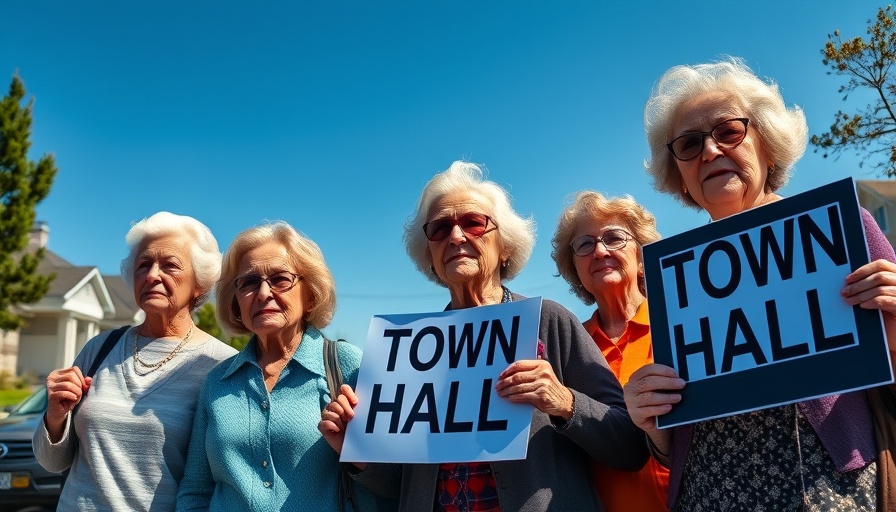
Local Voices Demand Accountability from Ohio Senators
In a striking demonstration of grassroots activism, dozens of residents gathered outside a Tesla dealership in Blue Ash, Ohio, recently to voice their demand for greater accessibility to their elected officials. Organized by Harrison teacher Christy Pember, the protest highlighted the simmering frustration among constituents regarding their representatives’ engagement with the public. "We just want to have a word," Pember declared, underscoring the desire for transparent communication and active dialogue between politicians and voters.
A Movement for Change
Pember’s call to action included a request for Ohio’s Republican senators to facilitate at least six town hall meetings across the state by July 4. The plan is to hold three sessions in major urban areas such as Cincinnati, Columbus, and Cleveland, while allowing the senators to select the locations for the remaining meetings. This campaign represents more than just a series of public talks; it's a movement aimed at reinforcing democratic engagement and advocacy.
Grassroots Concerns Spark Political Dialogue
The protest is part of a growing trend where constituents express their dissatisfaction with the political status quo. Participants like Coy Southerland and his wife Robin emphasized the importance of senators truly listening to the needs and concerns of Ohioans, particularly regarding federal benefit programs. Robin stated, "We need to get our own senators to start listening to us, which they're not." This sentiment is echoed across various demographics, reflecting a widespread desire for direct communication with elected officials.
Current Political Landscape and Public Engagement
Ohio’s senators have been both criticized and supported for their efforts to reach constituents. Jon Husted, one of the senators, recently conducted several regional visits, discussing how federal policies impact Ohio communities. His office reported 94 visits since January, an effort to engage with local citizens about pressing issues. While these visits are commendable, many, including Pember, argue that town halls provide a more substantial platform for discussion.
The Importance of Town Halls in Modern Democracy
Town halls have traditionally been a format for transparency and public discourse. Such meetings offer more than just a chance for politicians to share their views; they enable constituents to address their concerns directly. As political tensions rise and government actions increasingly affect everyday lives, the need for accessible forums becomes even more critical. Pember’s initiative aims not only to facilitate these gatherings but also to inspire other citizens to speak up.
What Lies Ahead for Ohio’s Political Engagement
The outcome of Pember’s protest may have ripple effects beyond Ohio. If the senators prioritize these town halls, it could set a precedent for other states where citizens feel disconnected from their representatives. Political analysts suggest that with an increase in public engagement, elected officials may become more attuned to their constituents’ needs, potentially leading to more responsive governance.
Engaging New Voters and Building Community
For many, the protest represented the first opportunity to participate in political discourse and advocate for community issues. As Ohio's political landscape evolves, this movement could foster an environment where younger voters become increasingly active. Such changes may transform how future elections unfold, emphasizing the importance of public sentiment.
Pember remains resolute in her commitment to advocating for these town halls, declaring, "I think I'm in this for the long haul." Her determination reflects a broader call for civic engagement that resonates with citizens seeking accountability and connection in a rapidly changing political climate.
 Add Row
Add Row  Add
Add 




Write A Comment